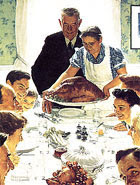
Thoughts on section one The Inward Disciplines
I have always been fascinated by the fact that my inward life, when disciplined, makes my outward life much more effective. There is for me and I believe all people a direct link between the inner life and the outer life. There is a balance to life when the interior aspects of life are being aligned to God’s will and work. I can have everything going my way outwardly and be frantic if my heart, mind, and soul are not being immersed in God’s presence through the inward disciplines. Likewise, I can have my world turned upside down and be at complete rest when I am focused on God through the disciplines of the inner life.
Over the years I have practiced each of these and have found some success and some failure. The success has come when I have not brought any expectations to the discipline other than obedience and the desire to see God’s face. When I come with a preconceived concept of what I want God to do, I rarely succeed in growing through the inward disciplines.
The discipline of meditation is the most enjoyable of all of the disciplines for me. It allows me to be still and know that God is God and that I am not. It is a refreshing time when I release all responsibility onto God and discover where He is at work so I can join Him there and ride the wave of His power and love.
It is a time of great worship. When we meditate, “we create the emotional and spiritual space which allows Christ to construct an inner sanctuary of the heart” (p.20). It is very important that we learn the difference in Biblical meditation and that of other religious and psychological camps.
Prayer is a constant struggle for me. I would love to say that it is because I am so busy doing things for God that I don’t have time to pray. The fact of the matter is I don’t want to change and discover what God wants done. I just want to do what makes me happy and what makes me look good. That is my sin. Foster points out well that “If we are unwilling to change, we will abandon prayer” (p.33). Change is hard for a control freak and an insecure soul that seeks the applause of people. I must discipline my heart and mind in meditation before I can pray effectively. I must do that because “In prayer, real prayer, we begin to think God’s thoughts after him: to desire the things he desires, to love the things he loves, to will the things he wills” (Ibid).
I have been most successful in prayer when I schedule a specific time and place. It is also helpful for me to pray using the A.C.T.S. method. A is for adoration. It helps me to remember who I am praying to. C is for confession. When I reflect rightly on God, it is easy to see my sin and acknowledge it to my gracious King. T is for thanksgiving. When I consider God’s grace and goodness I cannot help but give Him thanks. S is for supplication. Having purified my heart and prepared my mind I can pray for the needs I know of confidently in the name of Christ.
The discipline of fasting is the most difficult discipline for me. I find comfort in food. Under pressure I will reach for M&Ms. Fasting forces me to stop relying on me and to rely solely on God as my peace and comfort.
It is weird, but what I am doing when I reach for food as comfort is seeking to make food save me. I am asking food to do something it cannot do. That means that I will not be satisfied or at peace. I must discipline myself to seek the Savior who can comfort me and give me peace. His name is Jesus.
To enjoy Jesus I must from time to time release my compulsion to find comfort in food. Fasting is a way to do that. “Food does not sustain us; God sustains us” (p.55). Fasting provides that reminder of reality.
There are many reasons and seasons for fasting. I have fasted most often when a decision had to be made or when I felt my focus on Christ slipping. It is helpful to fast a day or two a week and then to have a time (a week or more) of fasting. Foster provides basic instructions on how to do that, but there are other books by Bill Bright and John Piper to name two that can help you.
What I have found most effective is to schedule the fast and to let my wife and accountability partners know about it. This helps in meal preparation for my wife (she doesn’t make my favorites). My accountability partners help watch my attitude as sin is revealed: fear, anger, resentment, etc.
Study is the easiest of the disciplines for me. I have always been a reader and a thinker. Study is more than reading books. It is examining all of life. Foster is right, “To read (study) successfully we need the extrinsic aids of experience, other books, and live discussion” (p.68). That is why this last year when we “Walked in the Word” I asked our people not only to read the Bible, but also to worship and hear my preaching on the books of the Bible - experience, to read D.A. Carson’s devotion for commentary - other books, and to get in a small group to discuss what was learned - live discussion. That is the way to truly study.
These disciplines form the foundation of a life that can grow in grace and find strength through spiritual development.






